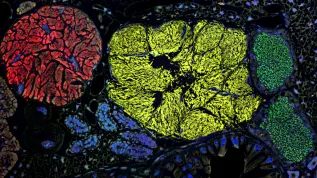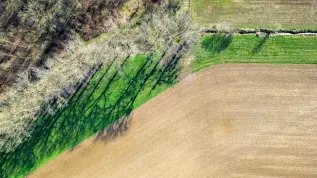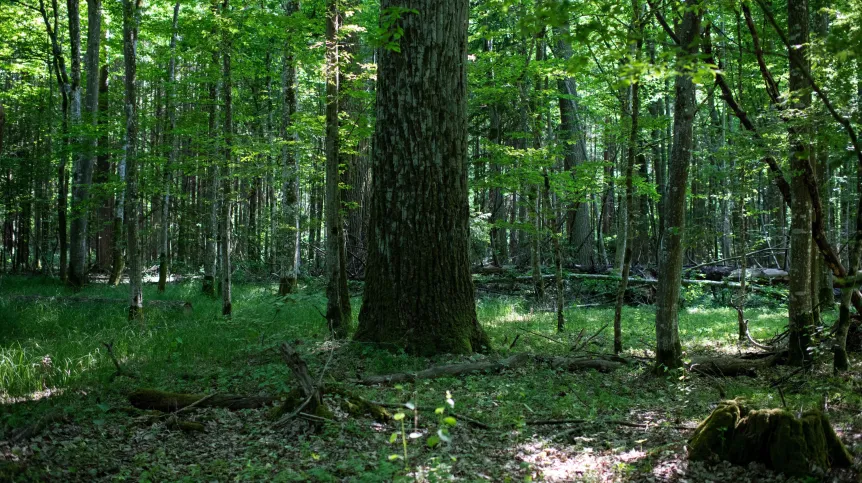
The higher the annual temperature, the greater the impact of herbivorous insects on the circulation of nutrients and carbon in deciduous forests, shows a global study conducted in 40 such natural environments. One of them was the Białowieża Forest.
The results were published in the journal Nature Communications. The Polish team consisted of researchers from the Mammal Research Institute at the Polish Academy of Sciences in Białowieża: Dr. Dries Kuijper, a professor at the Mammal Research Institute PAS and Dr. Marcin Churski, a doctoral candidate from the Faculty of Biology of the University of Warsaw.
The study covered areas in different climatic regions around the world: a total of 40 deciduous forest systems in North and South America, Europe, Asia and Australia. In Europe, the study was conducted in the Atlantic region (the UK), the Balkans, Central Europe (the Białowieża Forest) and Scandinavia.
The main goal was to assess the role of insects in influencing biogeochemical cycles in different forest systems around the world. 'We already knew that herbivorous insects altered biogeochemical cycling within forests, but the magnitude of these impacts, their global variation, and drivers of this variation remained poorly understood', the scientists say.
They consequently analysed freshly senesced and green leaves for carbon, nitrogen, phosphorus and silica concentrations, foliar production and herbivory, and stand-level nutrient fluxes.
'Research has shown that the impact of herbivorous insects on the circulation of elements and carbon in deciduous forests is so great that they can even change the cycling of ecosystem elements. Nutrient and carbon fluxes in some locations are greater than atmospheric deposition (another way in which nutrient fluxes can return to the Earth's surface: through precipitation [rain, snow, fog], particles, aerosols and gases that move from the atmosphere to the soil), which makes them a very important factor for biogeochemical cycles', Dr. Kuijper told PAP - Science in Poland.
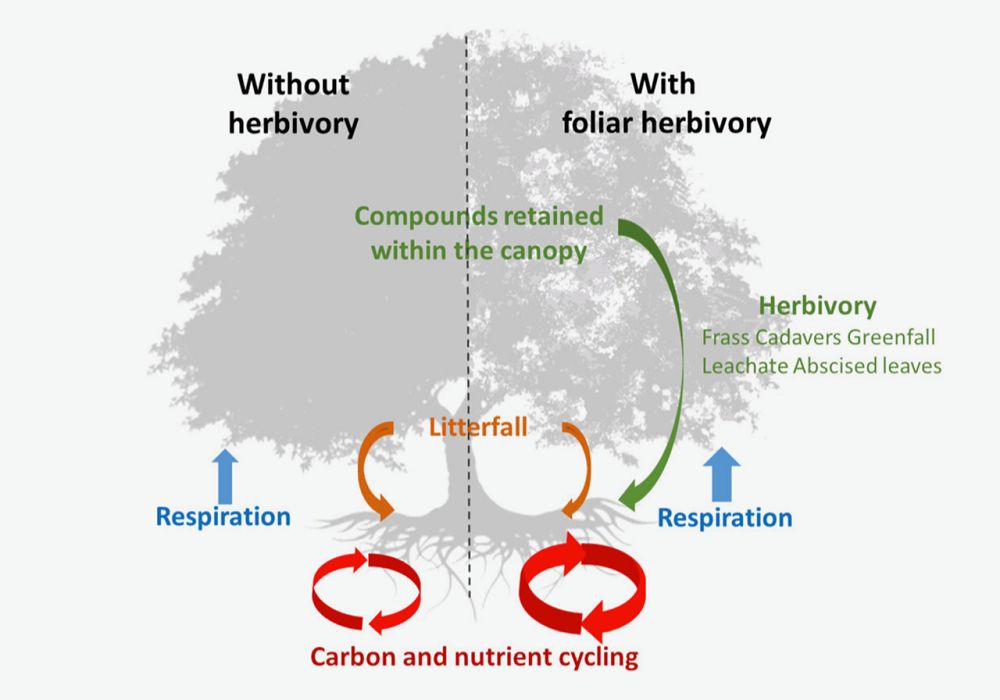
Moreover, the importance of the role of these insects depends on the annual temperature: in tropical forests they release larger amounts of nutrients than in temperate and boreal forests (taiga).
'This means that climate change will greatly affect these ecosystem processes in deciduous forest systems - so the climate can affect the interactions between natural plant and herbivore populations, which has important consequences for global biogeochemical cycles in deciduous forests', Kuijper adds.
A biogeochemical cycle refers to the cycles of different nutrients and chemical elements in a system. 'In relation to forest systems, the cycle starts with the uptake of nutrients (e.g. nitrogen, phosphorus) by tree roots. Trees use these nutrients to grow, in combination with sunlight, which enables them to photosynthesise to capture carbon from the air. This means that more and more nutrients and carbon are stored in the woody material and leaves of the trees. When the leaves or branches fall, some of these nutrients and elements return to the soil. After microbial decomposition, these elements and nutrients become available to plants again, making the biogeochemical cycle complete. The very name of the biogeochemical cycle indicates that, in addition to biotic factors, geochemical processes also play a role in it', says Kuijper.
Biotic factors such as insects also affect it. 'Although they are very small, insects occur in huge numbers, which makes them also very important (maybe even the most important) herbivores in the system. There are many insects that eat tree leaves, and often different tree species have their own insect communities. When insects eat leaves, they partially digest them and defecate, leaving behind so-called insect excrement. Leaves are also often partially eaten, and parts of them fall off or fall off faster than leaves that have not been bitten by insects. All these processes lead to a faster return of nutrients (especially nitrogen and phosphorus) and carbon to the soil. As a result, insect herbivory generally leads to an acceleration of biogeochemical cycles', Kuijper continues.
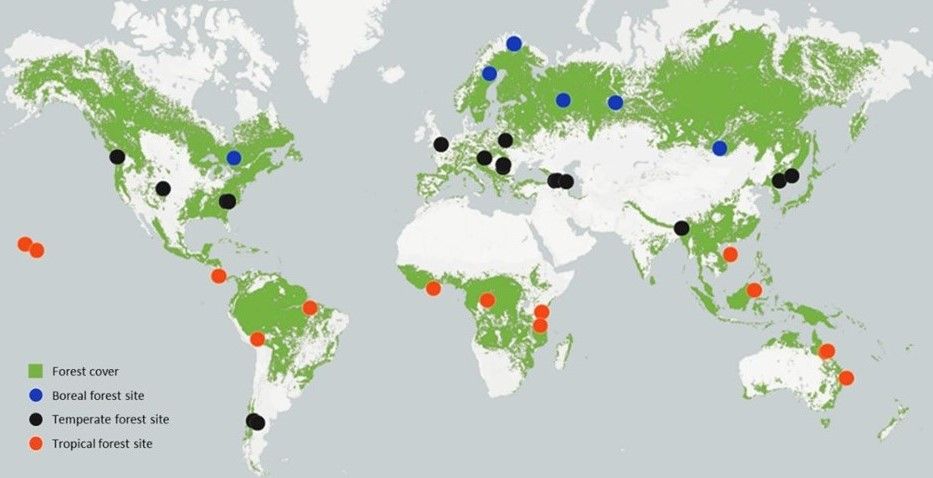
According to the scientist, the results are important primarily for understanding the functioning of ecosystems around the world. 'Secondly, it is also very important to quantify the impact of insects, which will allow us to include it in large, global models of nutrient and carbon cycling. This is important because carbon storage plays a key role in predicting future climate change', Dries Kuijper concludes. (PAP)
PAP - Science in Poland, Agnieszka Kliks-Pudlik
akp/ bar/ kap/
tr. RL

